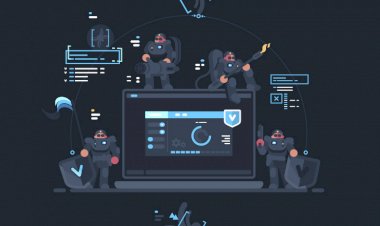How to Set a Regulatory Framework for Quantum Computing and AI

A collaborative effort from governments, researchers, business, civil society, and international organizations is necessary to tackle the complex and multifaceted challenge of regulating quantum technology and AI. It is more crucial than ever to make sure that these technologies are used ethically, safely, and for the good of society as a whole. As they develop and become more integrated into our daily lives, they will become more and more important.
The fact that quantum technology is a rapidly developing field with a wide range of potential applications presents one of the main difficulties in regulating it. This makes it challenging to establish precise rules for how quantum technology should be used and what constitutes moral behavior. Nevertheless, several potential strategies for effective regulation of quantum technology have been put forth by experts in the field.
Focusing less on the technology itself and more on how using it will behave and result in outcomes is one strategy. This would entail establishing precise rules for the appropriate application of quantum technology and making sure that any unfavorable effects are dealt with. Regulators could set standards for the application of quantum computing in the financial sector and mandate that businesses use these technologies in a transparent and accountable manner.
Another strategy is to create unambiguous and consistent standards and norms for the advancement and application of quantum technology in various fields and nations. This would make it easier to make sure that all users of quantum technology, regardless of their location or industry, are abiding by the same set of rules and guidelines. In a manner similar to the International Atomic Energy Agency, this could entail establishing a global regulatory body to monitor the advancement and application of quantum technology.
Another crucial component of controlling quantum technology is collaboration and communication among various stakeholders. To make sure that quantum technology is used ethically and securely, governments, researchers, business, civil society, and international organizations should all collaborate. This could entail setting up a forum for stakeholders to exchange knowledge and best practices or forming an advisory board to offer advice on the advancement and application of quantum technology.
Given that quantum technology is a rapidly developing field, it is also crucial to develop flexible and adaptable regulatory frameworks. When new applications or risks related to these technologies are discovered, regulators must be able to act quickly in order to meet changing demands and conditions. This might entail creating a flexible regulatory framework that can be quickly updated in response to evolving conditions, or creating a regulatory sandbox that enables businesses to test out novel uses of quantum technology in a safe setting.
Finally, it is crucial to spread knowledge and understanding of quantum technology among the general public and decision-makers. Policymakers can choose more wisely what regulations to enact by having a better understanding of quantum technology and its potential effects. This could entail developing educational resources for the general public and policymakers or starting a public awareness campaign to draw attention to the advantages and dangers of quantum technology.
In conclusion, regulating AI and quantum technology is a difficult and multifaceted task that needs the cooperation of governments, academics, business, the public sector, and international organizations. We can guarantee that quantum technology is used morally, safely, and for the good of society as a whole by putting an emphasis on the actions and results of using it, establishing precise and consistent standards and norms, encouraging collaboration and dialogue, developing agile and adaptable regulatory frameworks, and raising awareness.
By Pooyan Ghamari, Swiss Economist with Expertise in the Digital World and AI

 content-team
content-team 


















